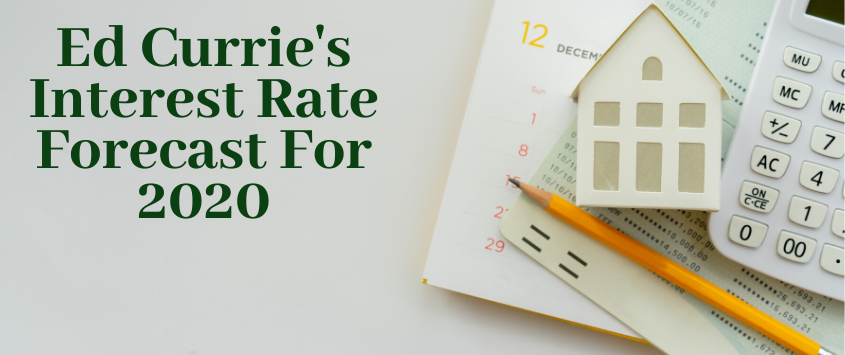The “experts” really whiffed on their interest rate forecasts for 2019. Most experts predicted the Federal Reserve would raise rates 2-4 times and mortgage rates would increase to as high as 5.50%. As it turned out, the Fed cut rates three times and the 30-year fixed ended the year at 3.75%.
So what will happen in 2020? Most experts are predicting rates to be around where they ended 2019 – 3.75%. I agree with this. I would think the 30-year fixed should be in the 3.50% – 4.00% range for most of the year.
The Variables
2020 could be a very volatile year for a number of reasons. It seems to me most of the issues, if impactful, would lend toward lower rates. So if we break out of the 3.5% – 4.0% range, I think it could be to the downside. These variables include:
Geopolitical Tension: Geopolitical tensions are always a possibility. The recent scuffle with Iran seems to have subsided, but an elevated interaction with Iran or elsewhere could help push rates lower.
China Trade: I tend to view this as a wash in the long-term. Higher tariffs can lead to higher rates but higher tariffs can also lead to slowing the economy which leads to lower rates.
Stock Market: The stock market was up about 30% in 2019. Generally, when stocks do well, mortgage rates do poorly. So it’s a little shocking that stocks did so well and rates fell over 1% at the same time. I would expect the stock market to not do as well in 2020 and that should help support keeping rates low. A significant correction would push rates even lower.
Election: This could be a big one. The markets like the status quo. If the Dems win, a Biden victory will be the least disruptive. However, disruptive would be good for mortgage rates. A Trump or Biden win should keep rates steady while a Warren or Sanders (or other Dem) win should cause stocks to selloff and rates to fall.
Inflation: Inflation is bad for interest rates. There have been continued calls that inflation must creep higher at some point because of record-low unemployment and the strong consumer. This simply hasn’t happened. Inflation has been steady or falling for goods and services as well as wages. This keeps the pressure off the Fed from raising rates.
Recession: Recession is officially defined as two consecutive quarters of negative GDP. We don’t have one yet. So the likelihood of a recession this year is low but there have been, at times, indicators one is right around the corner. If we start to see employment weakening that would be the sign of a recession on the horizon.
Regardless of what is being forecasted, don’t wait to make a move if something makes sense right now. If you can save money by refinancing or consolidating debts, don’t wait for a forecasted lower rate that may never materialize. If you have a question for me or want me to review your account – email me here. And don’t forget to check us out on Facebook, Twitter, LinkedIn, Pinterest or Instagram for our latest tips and updates!




